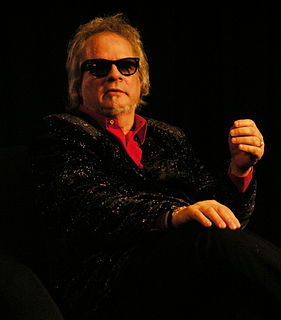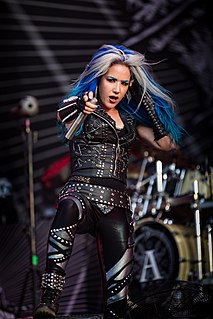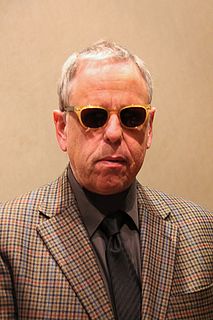A Quote by Lauren Oliver
Poetry isn't like any writing I've ever heard before. I don't understand all of it, just bits of images, sentences that appear half-finished, all fluttering together like brightly colored ribbons in the wind.
Related Quotes
What I'm really involved in when I'm writing is something that no one ever mentions when they see any play. Writing is like trying to make gunpowder out of chemicals. You have these words and sentences and the strange meanings and associations that are attached to the words and sentences, and you're somehow cooking these things all up so that they suddenly explode and have a powerful effect. That's what absorbs me from day to day in writing a play.
We’re face to face with images all the time in a way that we never have been before... Young people need to understand that not all images are there to be consumed like fast food and then forgotten – we need to educate them to understand the difference between moving images that engage their humanity and their intelligence, and moving images that are just selling them something.
We do have to learn poetry at school. Poetry is interesting to me, particularly Chinese poetry. It's like an ancient form of song. There's five sentences, seven sentences - they're very different from English poetry. Chinese poetry is much more rigorous. You can only use this many words, and they will form some kind of rhythm so people can actually sing it. To me, poetry is quite abstract but also quite beautiful.
I had Paterson, and The Art Lover, to guide me for The Tales of Horror (written from 1988-'97 and published in 1999), but I still was so lost, back then, as I tried to understand what I was writing and how it went together. There was a draft of that manuscript that had all these brightly colored paper clips on the pages so I could visualize what I saw as the book's themes and threads - that was a long time ago.
People don't talk like this, theytalklikethis. Syllables, words, sentences run together like a watercolour left in the rain. To understand what anyone is saying to us we must separate these noises into words and the words into sentences so that we might in our turn issue a stream of mixed sounds in response.
I used to think that when I finished a book, I was finished with it. But it's like a wonderful Hydra. Every time a head disappears, more heads appear, so I will be writing for the rest of my life. The more books I write, the more books I find that I still have to write about. I use it like an inspiration, and that's wonderful.
Don’t ever leave me again,” I said in a tiny voice. I won’t,” he promised into my hair, sounding most un-Fang-like. “I won’t. Not ever.” And just like that, a cold shard of ice that had been inside my chest ever since we’d split up-well, it just disappeared. I felt myself relax for the first time in I don’t known how long. The wind was chilly, but the sun was bright, and my whole flock was together. Fang and I were together. Excuse me? I’m alive too.” Iggy’s plaintive voice made me pull back.



































